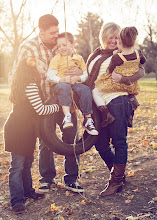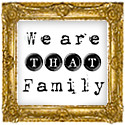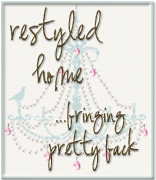talk to me thursdays.. featuring my first guest Tina Koral
I wanted something new and exciting.. I want to spread the word about many different issues in this world.. and what better way to reach out to my readers and the world than through a blog.. it reaches so much more than word of mouth..
Tina is a mother, a daughter, a wife, a writer a fighter and a survivor... she is also one of my newly found friends (i hate to call you guys clients bc you are all more than that to me) please read on.. and enjoy her amazing story and fight against breast cancer! 
The photographs from my wedding day in April 2003 show a joyful young couple, visibly excited to start a new life together. The promise of a happy home full of children shone in our eyes. The thrill of that day, of marrying my childhood love, will stay with me forever. What I did not know at the time was that along with something old, new, borrowed and blue, I carried a seven centimeter, rapidly growing mass of malignant cells in my breast. I was twenty-nine years old.
In December 2001, I noticed a lump in my right breast. It was hard, round, and moveable. I quickly made an appointment to see my OBGYN. At my appointment in early February, 2002, she told me it was just a cyst and nothing to worry about.
I was happy to go on with life, blissfully unaware that the cancer was growing. As it became larger, I became more concerned. Then, the discharge started. One morning, I woke up with what looked like two drips of something yellow on my pajamas right over my right nipple. The first time I noticed the stain, I thought it was from something I had eaten or drank the night before. But when I saw it again the next morning on a clean t-shirt I had worn to bed, I wondered if it had come from my breast. I lifted my shirt and squeezed the nipple with my thumb and forefinger. Sure enough, out came a drop of yellowish fluid. I began researching breast conditions on the internet and found that this was not normal. I knew it was time to get a second opinion.
I made an appointment for another OBGYN in November 2002, who again told me that due to my age and family history, I had nothing to worry about. It felt to him like a cyst. I persisted though, and asked for a mammogram. The hospital denied my mammogram, and sent me for an ultrasound instead. For the third time, I was told that the lump was a cyst, it was common, and not to be concerned.
I was relieved. It wasn’t cancer. I knew this because three doctors now had told me so. I could put the fears that I now thought were unreasonable behind me. I was left in a state of comfortable ignorance while the cancer was left to grow unchallenged for about nine more months.
From November 2002 when I’d had the ultrasound, until June of 2003, the mass in my breast continued to grow into a thickness that filled half of my right breast. Based on what the doctors had told me, I thought this was nothing more than maybe a group of cysts developing around the original one. I decided to see a new physician because I was unhappy with the care I had received previously. I noticed the look of concern on my new doctor’s face as she started the breast exam and felt the large area, and my heart sank. She commented that it did not feel normal, and referred me to a breast surgeon, where I had a mammogram, ultrasound, and finally a biopsy. I was diagnosed with breast cancer the following Monday, August 18, 2003, eighteen months after first bringing the lump to the attention of my doctor.
When I received the phone call from the breast surgeon telling me I had cancer, my body went completely limp, while my mind raced with questions. Now what? What kinds of treatment would I endure? Was I going to die? Why had I wasted so much time in graduate school? Should I cash out my 401k? Why hadn’t the other doctors found cancer?
When we met with my oncologist, she outlined in detail my diagnosis. My cancer was Stage 3A – a mass over 5 centimeters with lymph node involvement. Her recommendations for treatment included chemotherapy followed by a mastectomy, radiation, and hormonal therapy. Despite all of these efforts, the American Cancer Society estimated my chances of surviving five years to be 56%.
This was a difficult piece of information to swallow. My chances of making it to 35 years old were only 50-50? All of the years of study and work that I had put into my career now seemed like a waste of time. I wouldn’t even have my student loans paid off by age 35! Would I live long enough to have children? Would I see them grow up? It was incredibly scary to think the time I had left could be so short.
Although I knew my husband Joe would be with me every step of the way, I had never felt so alone in my life. My mind went to some very dark places in the days that followed. I couldn’t believe that a disease so rare (less than half of one percent of all women diagnosed with breast cancer are younger than 30) had invaded my body. I was always healthy prior to this, no illnesses, no allergies, not even a broken bone. With no family history of breast cancer, it was just so unlikely that this could ever happen, yet it did. I had no idea what to expect.
What is the point of doing monthly breast exams, like we are told to do, when no one will listen when you feel a lump? I was angry. I had placed my confidence, blindly perhaps, in three doctors who told me that the mass was just a common cyst. I was angry at them for not performing the tests necessary for a proper diagnosis, and angry at myself for not trusting my instincts and insisting on proper care. I wanted to hold someone accountable. I wanted to prevent this from happening to another young woman. I wanted an explanation. I met with a malpractice attorney and initiated a medical malpractice lawsuit against my doctors and their medical institutions.
The delayed diagnosis of breast cancer is the most common type of medical malpractice lawsuit. Many young women go undiagnosed while their cancers continue to grow inside them because their doctors think they are simply too young to get breast cancer, or choose to roll the dice and not order necessary diagnostic tests in an effort to reduce costs.
Thankfully, I experienced a complete pathological response with chemotherapy, meaning there were no signs of cancer on the scans that were taken after my five treatments. However, because of the aggressiveness of my cancer, a mastectomy was still the recommended course of action. Following the mastectomy and reconstruction, I started a set of thirty-three radiation treatments and five years of hormonal therapy.
It’s been over five years since my diagnosis, and many understand this to mean that a person who has not experienced a recurrence for five years after the initial treatment has no cancer cells or undetected tumors in their body, and that the chance of getting cancer again is the same as anyone else. However, with breast cancer, people are known to have recurrences ten or fifteen years after the initial diagnosis, especially if their original tumor was fueled by estrogen, like mine was. It is difficult to live with the fear that the cancer will come back. What else can I say, other than I hope it doesn’t. But if it does, I will fight it harder than I did the first time. I have so much more to fight for now.
My experience with the delayed diagnosis of my cancer has taught me to be much more vigilant when it comes to medical care. I ask questions now, research a lot more, and form better partnerships with my healthcare providers.
Tina Koral is a freelance writer who has published her story of breast cancer and medical malpractice, If I Just Breathe. For more information, visit www.tinakoral.com















1 comments:
I have a very similar story of seeing four doctors and having three negative and one negative ultra sound later to find out stage four cancer with the lymph nodes positive. I am thankful God had another plan. Since that battle that took about three years and left me with poor health I have lived more than 10 years. Have two grandchildren,seen two daughters grow up. One wedding and one to go this June. I do not understand why doctors refuse to listen to their patients. If I had found the lump before the invention of mamagrams etc. a biopsy would have been done because my grandmother had breast cancer. My comment, keep searching and never believe doctors know everything. A test is just a test, a clinical picture is something else. The truth is more people should tell their stories. I am thankful for Dr David Ewart, a friend first that listened. I am thankful for the many people that prayed for me and my family especially FBC, Siloam Springs, Ar.
Post a Comment